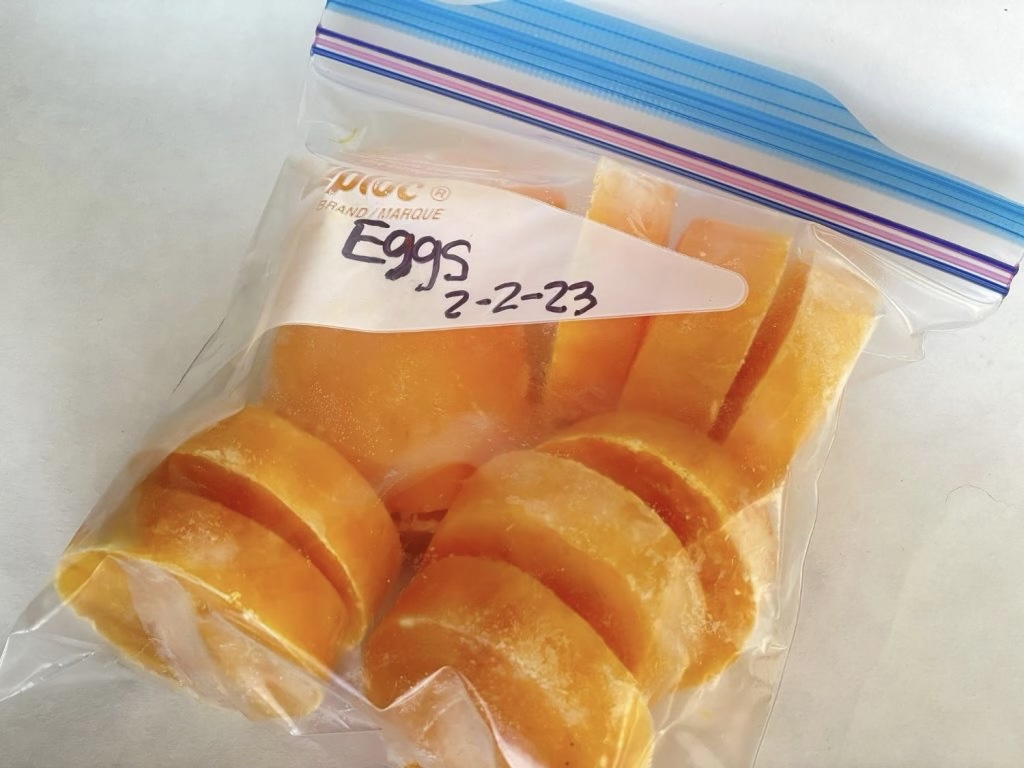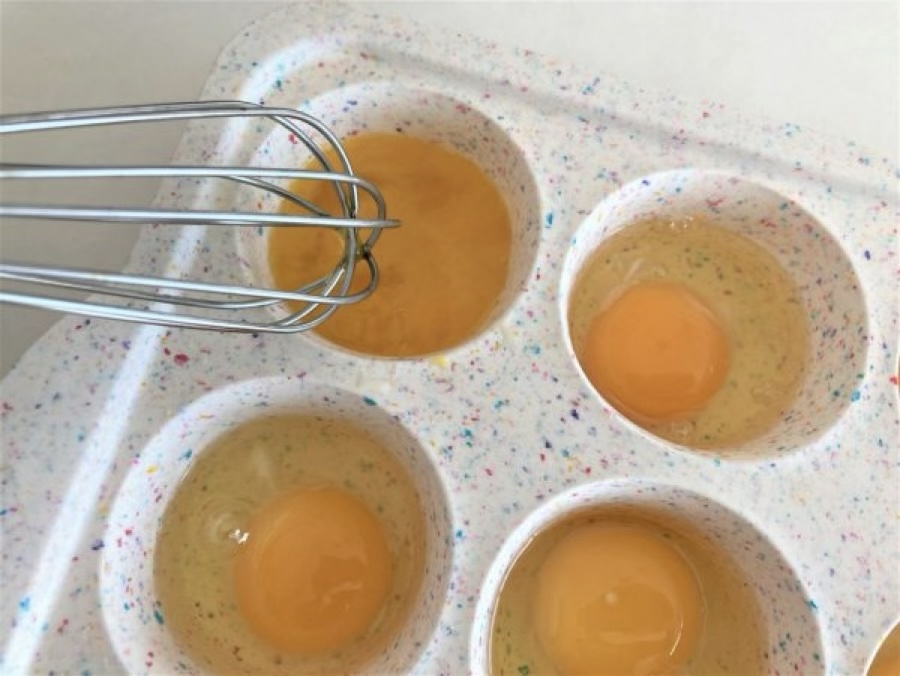How to Keep Eggs Way Past Their USE-BY Date
What with the price of eggs these days, and what with baking season upon us, I thought you might like to know (in case you don’t already) about freezing them. I first learned this about this practice from Linda Loosely of www.foodstoragemoms.com.
There are generally two times a year that eggs go on sale—Easter and the afore-mentioned baking season (aka “the holidays”). Thus, it’s a good time to buy extra and stock up. And this is where freezing them comes in. They’ll keep way past their USE-BY date when frozen.

When done right, frozen eggs will have the same taste and texture as when you first bought them. However, I must warn you that you won’t be able to enjoy your eggs sunny side up. But you can still enjoy them scrambled, as an omelet, or in almost any other recipe calling for eggs.
Besides extending their storage life, freezing eggs can also save you time when prepping recipes or meals; they’re already mixed and ready to use. And freezing them also frees up space in your refrigerator while at the same time providing an extra supply (no more running out of eggs!).

There are a few ways you can freeze eggs safely and properly. You can freeze the whole egg, or freeze the yolk and the egg whites separately. It’s recommended that you label your containers ahead of time with all pertinent information so you know what you have and how many.
TO FREEZE WHOLE EGGS: Crack each one, whisk it well, and pour it into a lightly greased ice cube tray (regular or silicone). This works well if you typically use recipes that call for individual eggs. Just pull the number of eggs needed from the container and return the rest to the freezer. Or you can wait until all eggs are solid then pop them all out of the tray and into a plastic zippered freezer bag or freezer container.

FREEZING EGG YOLKS and WHITES: Once your eggs are separated, follow the same procedure as above. Place whites (however many you typically use in a recipe) in a well-greased ice cube tray; then do the same with the yolks. If cooking with them, then you’ll need to add a pinch of salt to each section, to prevent them from thickening while they’re frozen. To use them for baking desserts, add 1 ½ teaspoons of sugar to each egg yolk and place them in an individual ice tray or a freezer-safe bag or container.
THAWING FROZEN EGGS: Transfer the amount you’ll be using to your refrigerator and allow them time to thaw slowly. Resist the temptation to thaw them at room temperature—doing so allows the growth of bacteria.

A few final thoughts: Eggs in the shell don’t freeze well. They crack and ooze white, making a big mess. You’ll also find out that freezing eggs this way causes the yolk to become too syrupy and thick; your recipes won’t turn out well using eggs that have been frozen in the shell. Lastly, eggs can last up to a year in your freezer, and never refreeze thawed eggs.
 Alice Osborne
Alice Osborne
Weekly Newsletter Contributor since 2006
Email the author! alice@dvo.com
